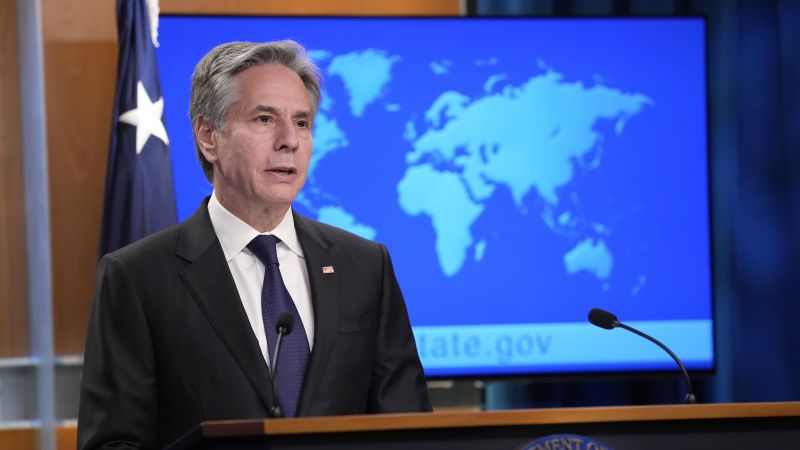The US State Department on Monday plans to release an ambitious new cybersecurity strategy that seeks to curb Russia and China’s digital influence in the developing world and blunt those countries’ alleged efforts to interfere in elections.
With roughly half of the world’s population holding elections in 2024, their vulnerability to “cyber-enabled interference” is “particularly acute” and requires the US to continuously expose hackers and propagandists trying to undermine confidence in democracies, says the strategy, which CNN has reviewed.
“We have communicated and will continue to communicate to Russia and to China that we view interference in our democratic processes in the United States as absolutely unacceptable,” Nate Fick, the State Department’s top cyber diplomat, said in an interview. “Secretary [Antony] Blinken has said it, and I have said it.”
Fick accompanied Blinken on a trip to China last month, where Blinken told CNN that the US has seen evidence of Chinese attempts to “influence and arguably interfere” with the upcoming US elections.
The new State Department strategy lays out principles that US diplomats will try to use to rally support for implementing tech policies and isolating autocratic regimes that control the flow of information. Blinken is set to announce the new strategy at the RSA Conference in San Francisco, one of the world’s biggest tech forums.
A key premise of the strategy is that economies and democracies need cybersecurity to thrive. A catastrophic ransomware attack, for example, can hobble an economy. A government can use phone-hacking spyware to put dissidents in jail.
The State Department strategy looks to win over more developing countries to what US officials call an “affirmative vision” for cyberspace that rejects digital repression. It builds on years of US lobbying allies and partners not to use key communications technology and software made in autocratic countries like Russia and China.
US officials have long argued that the technology is less secure and could be used for surveillance by Moscow or Beijing. But with the strategy, US officials are stepping up their arguments that the entire vision of the internet espoused by authoritarian arguments leaves societies worse off.
“I think that repressive regimes, including [China] and other actors … they’re in a lot of ways doing our work for us,” Fick told CNN. “They’ve misused cyber and digital tools repeatedly to threaten international peace and stability, to threaten economic security, to exert malign influence, to undermine human rights. And that narrative is becoming more widely understood and more broadly held, including in the developing world.”
Fick pointed to Costa Rica, a US ally that suffered a devastating ransomware attack by Russian-speaking hackers in 2022. The US announced $25 million in aid to help Costa Rica recover from the hack, which disrupted the Costa Rican government’s social security and finance agencies.
Costa Rica has also heeded US advice in rejecting the use of Chinese technology in its 5G mobile networks — a move that has angered Beijing. Elsewhere, though, Chinese telecom firms like Huawei have thrived, winning contracts across Africa.
“Of course we have our work cut out for us,” Fick conceded. “Of course there’s still a degree of attraction in many economies for these Belt and Road initiatives,” he added, referring to global infrastructure projects that analysts say China uses as a diplomatic tool.
Read the full article here
